Glasses that are overcorrected can cause eye strain, headaches, dizziness, and difficulty focusing, especially when reading or using screens. […]
What Happens If You Wear Glasses That Are Too Strong?
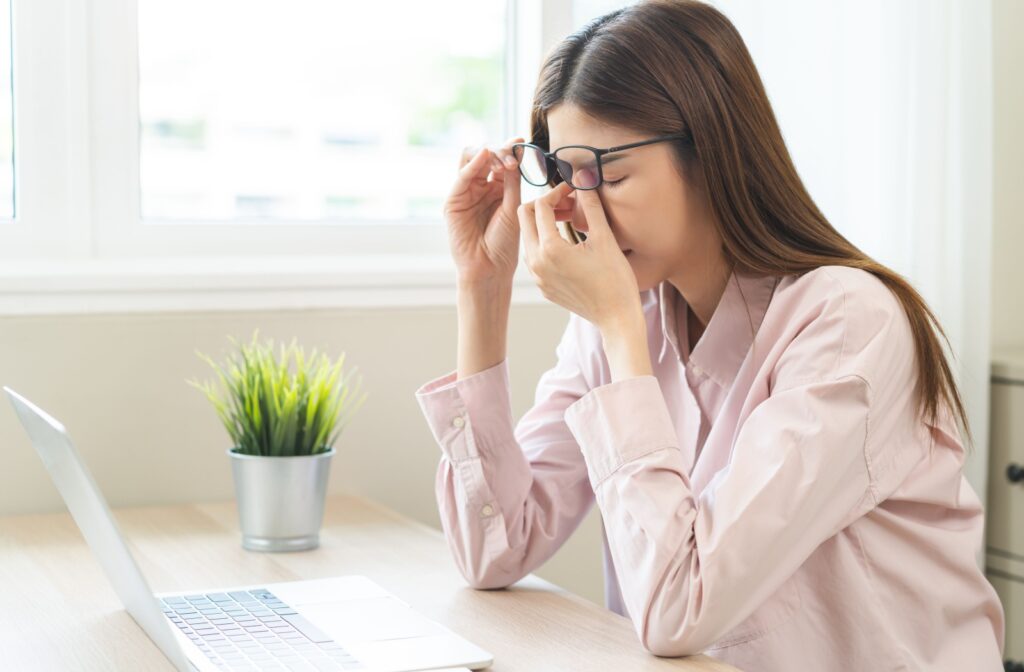

Glasses that are overcorrected can cause eye strain, headaches, dizziness, and difficulty focusing, especially when reading or using screens. […]
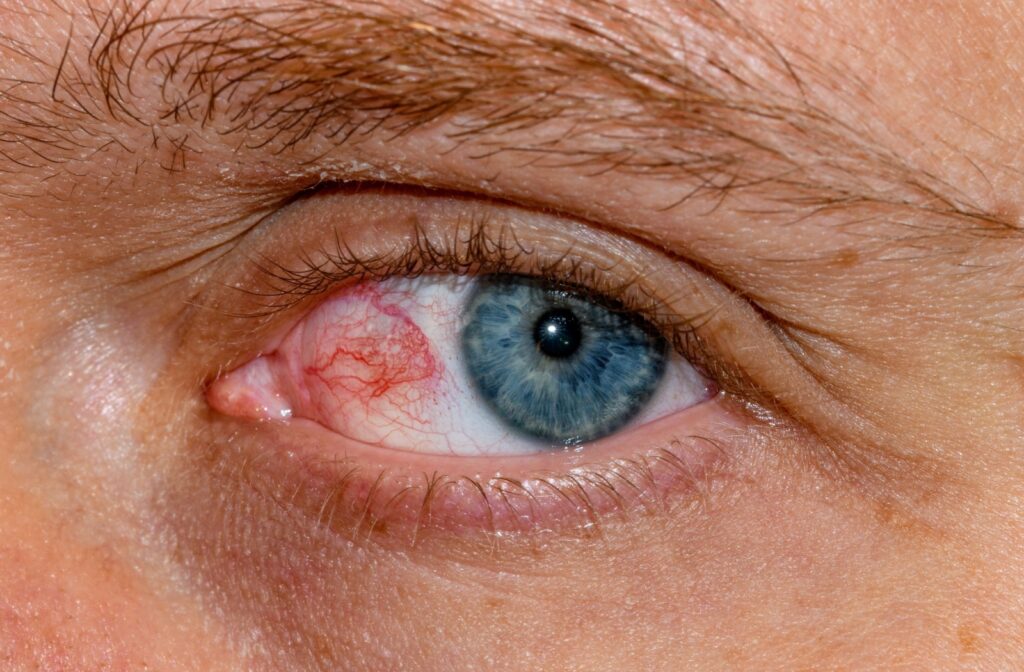
Discovering a red spot on the white of your eye can be startling. Some people notice them after a sneeze, cough, or even while lifting something heavy—which can easily make you think that something has gone wrong. Known as a subconjunctival hemorrhage, this condition might look alarming but is typically harmless.
It occurs when a tiny blood vessel bursts under the clear surface of your eye, and it usually resolves on its own within 1–2 weeks. […]
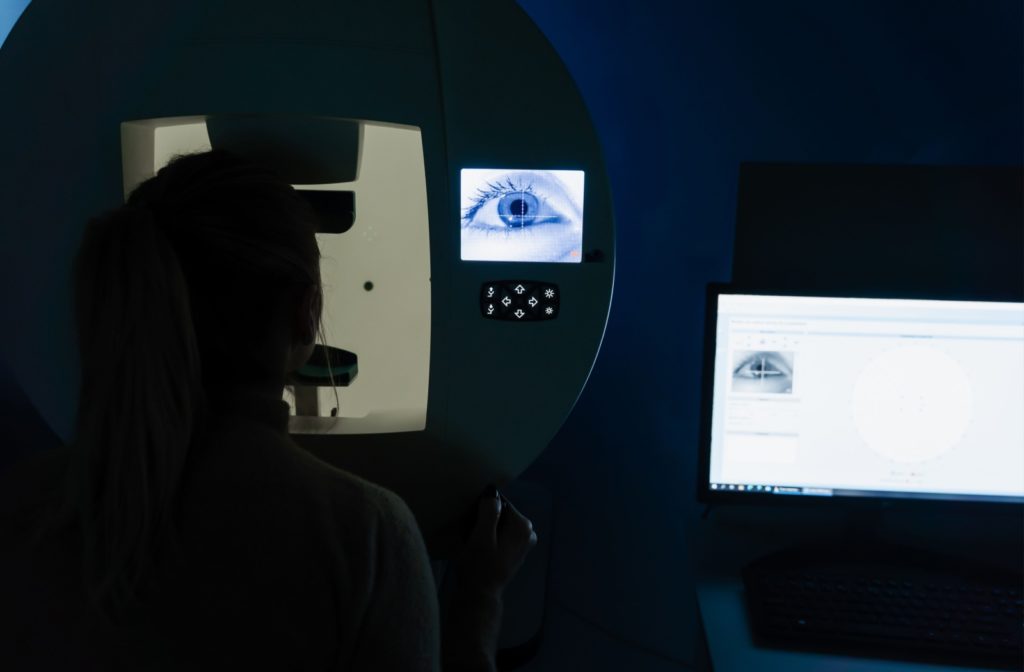
A visual field eye test measures the range of your vision, including how much you can see in every direction while focusing on a single point. […]
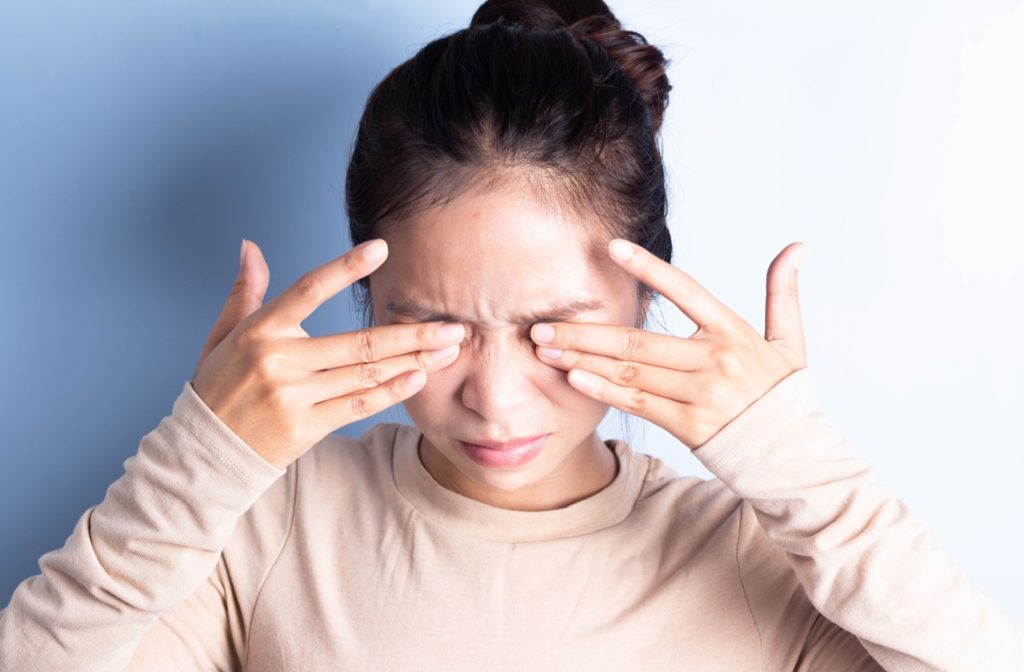
A number of factors can contribute to feeling pressure in your eyeball, including:
Eye strain
Dry eyes
Sinus pressure
Glaucoma
Migraines
Eye infection or injury
High blood pressure or stress […]
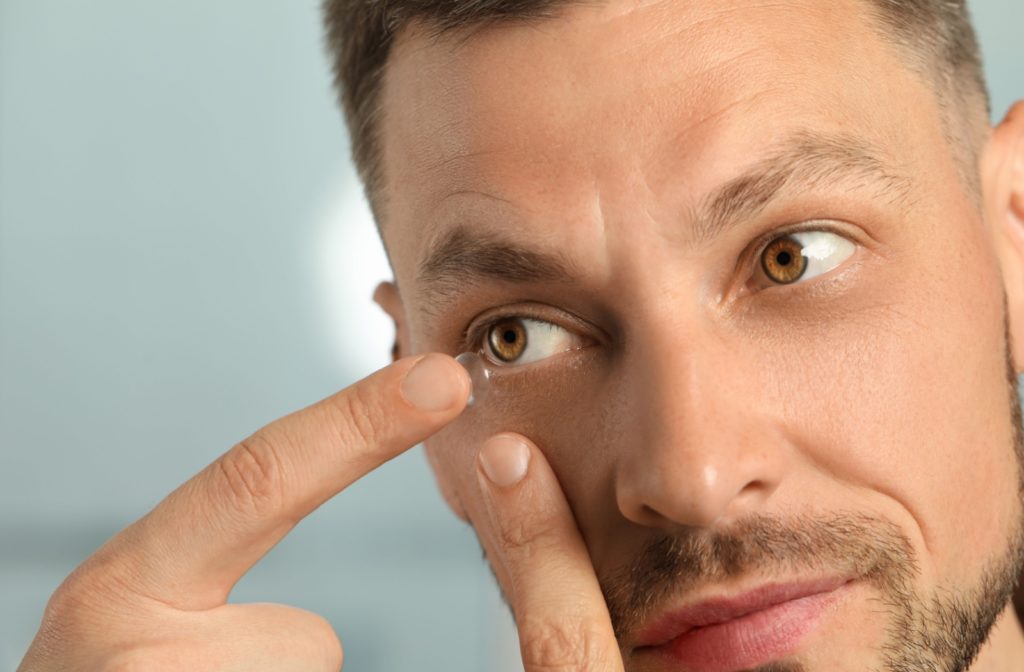
While wearing times may vary by lens type, generally, most eye care professionals recommend wearing contact lenses for no more than 8—16 hours at a stretch. […]
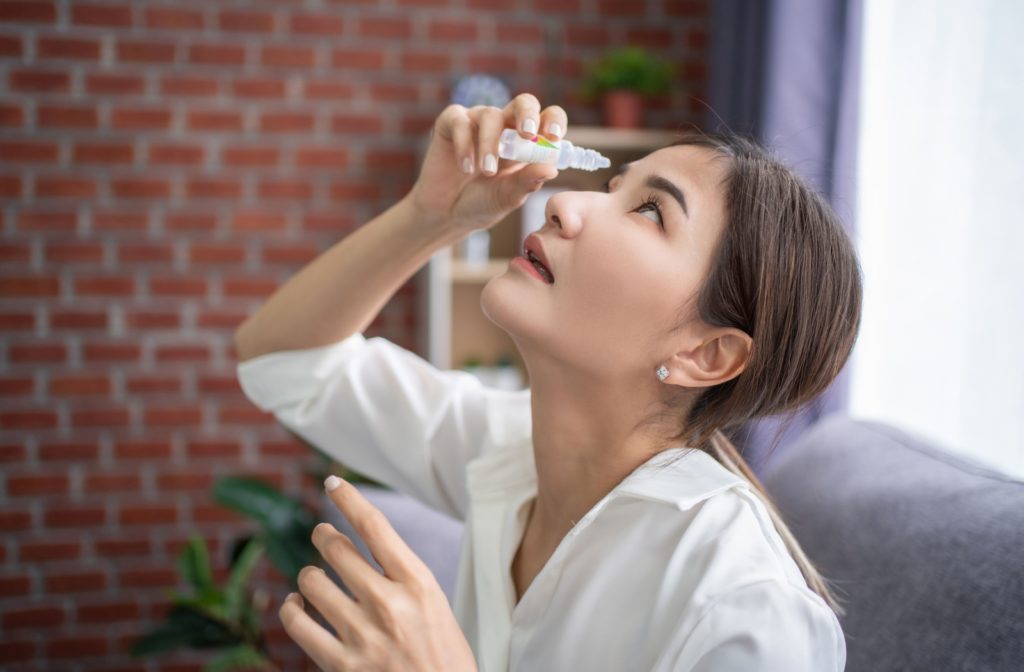
Atropine can help slow the progression of myopia by relaxing the eye’s focusing muscles and influencing the eye’s growth mechanisms. […]
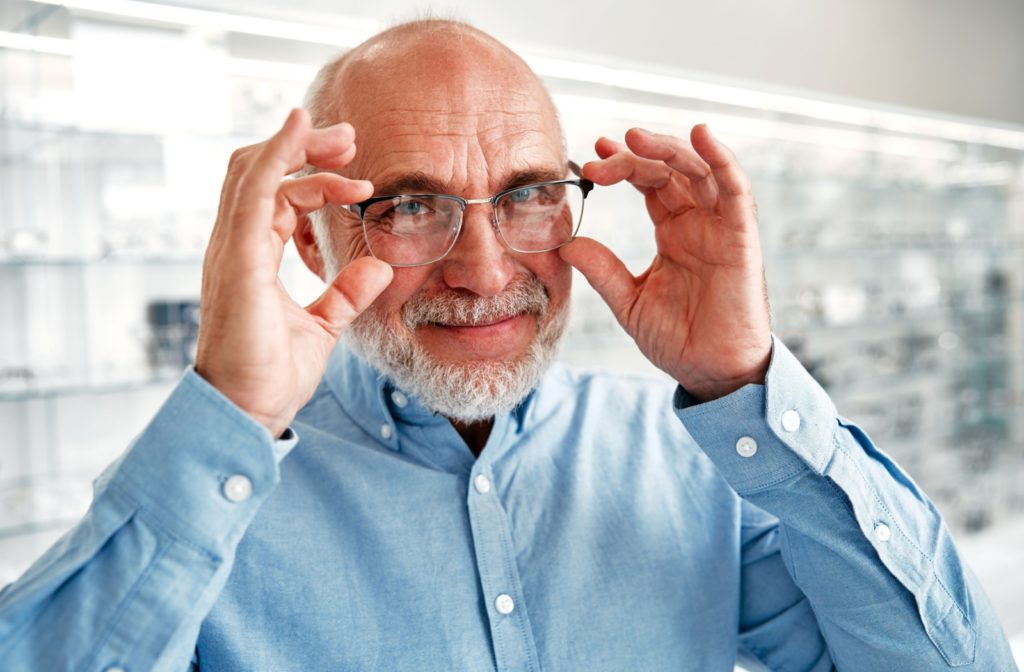
1) Regular eye exams
2) Reduced screen time
3) Wear sunglasses
4) Eat a healthy, balanced diet
5) Regular physical activity
6) Practice good eye hygiene
7) Prevent or treat dry eye disease
8) Recognize signs of vision problems
9) Wear protective eyewear when needed
10) Stay informed about your eye health […]
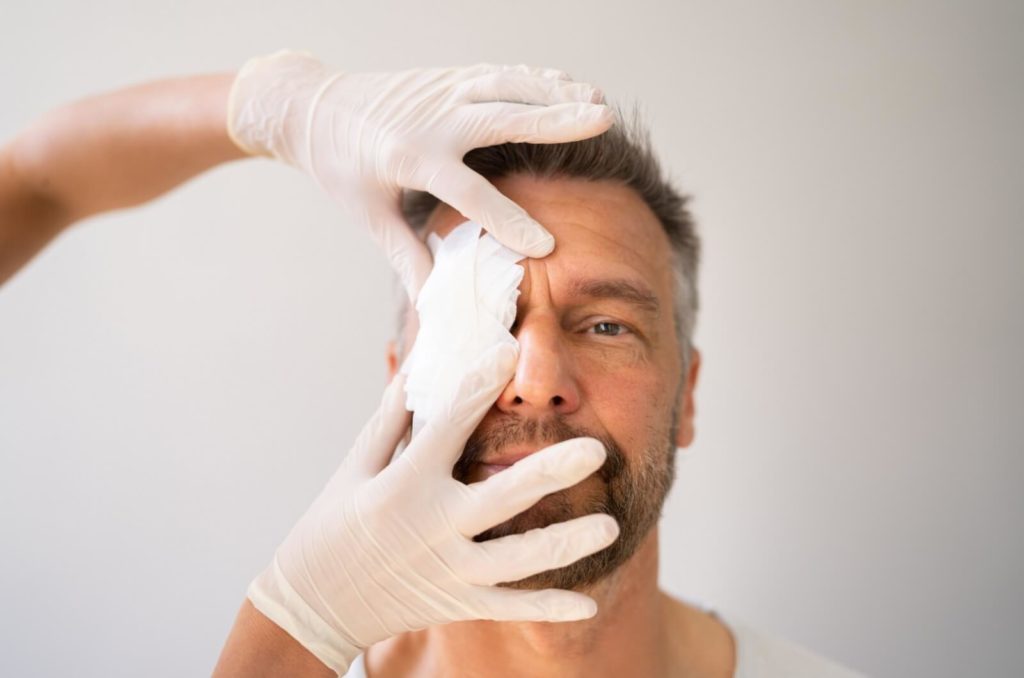
Eye emergencies include sudden or severe issues affecting your ocular health or overall vision. Urgent care is intended to handle […]

For many eyeglass wearers, neglecting to wear glasses can cause headaches on top of blurry vision, even with mild prescriptions. […]
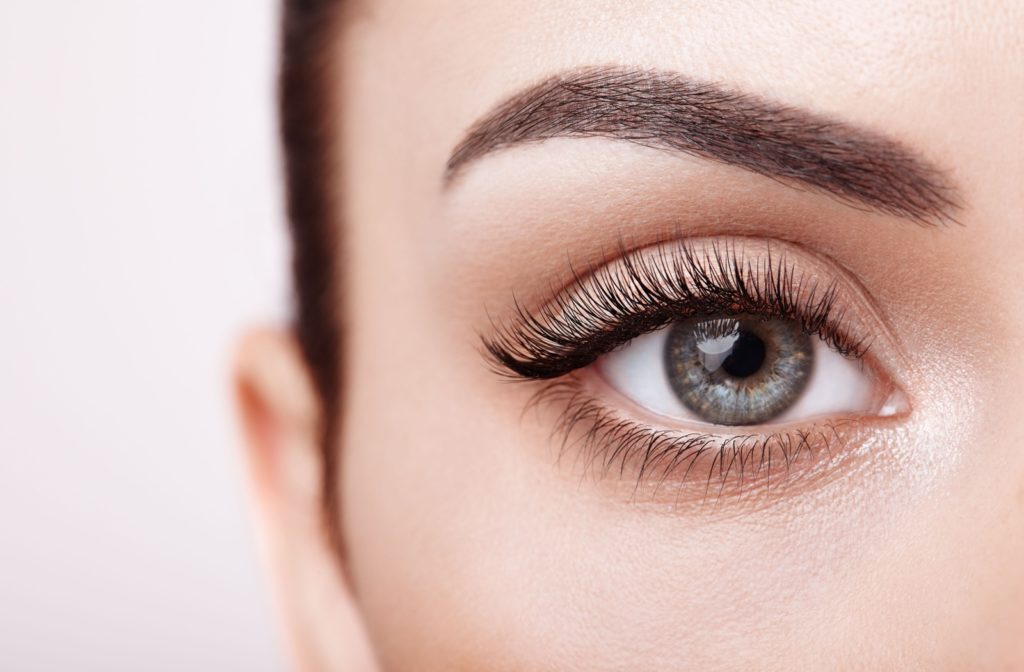
Eyelash extensions themselves don’t directly cause styes—but they do increase the chances of developing one. […]